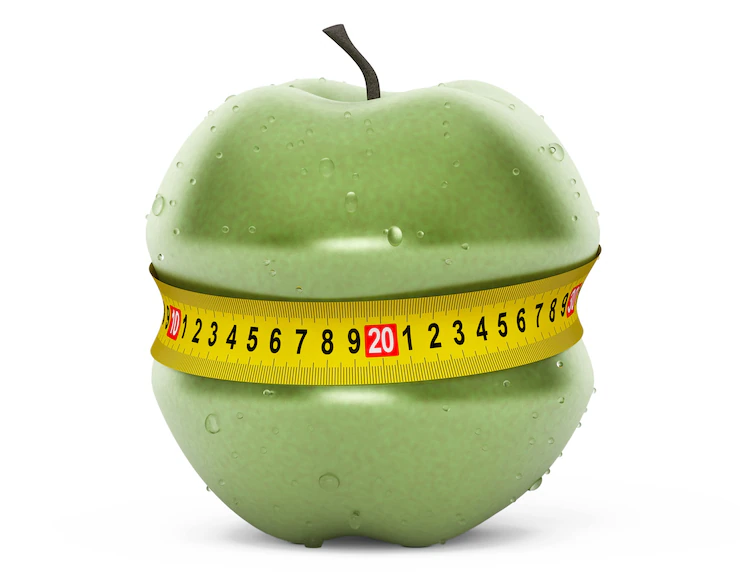Beyond Diet And Exercise: The Ultimate Guide To Medical Weight Loss Options
Diet and exercise are fundamental components of weight management, but they may not always be enough to achieve sustainable results, especially if you are struggling with severe obesity or underlying medical conditions. This is illustrated by a 2020 study that found that diets simply don’t work for most people.
This is where medical weight loss options in Virginia come in handy, offering a multifaceted approach that goes beyond traditional methods. In this comprehensive guide, we will tell you more about medical weight loss options, including their benefits and what to consider for effective and sustainable weight loss:
Contents
Understanding Medical Weight Loss

Medical weight loss offers a holistic approach to tackling obesity and related health problems. It involves the supervision and guidance of medical professionals, including doctors, dietitians, and psychologists, who work together to create a customized weight loss plan tailored to your unique needs.
These plans typically incorporate various interventions and may include the following key components:
Nutrition and Behavioral Counseling
Your diet plays a key role in weight loss endeavors. Registered dietitians play a crucial role in guiding you toward healthier eating habits. They help develop balanced meal plans that cater to specific dietary restrictions and preferences while promoting sustainable weight loss.
In addition to diet, psychological factors often play a significant role in obesity. Behavioral therapy, including cognitive-behavioral therapy (CBT), can help you address emotional and behavioral aspects of eating. After a few sessions, you will find it easier to adopt healthier habits.
Weight Loss Injection Treatment
There are also specialized weight loss clinics that offer comprehensive programs including weight loss injection treatment. Weight loss injections typically work through various mechanisms, depending on the specific type of injection and its components.
A good example is Tirzepatide (Mounjaro), a groundbreaking weight loss treatment that works by addressing persistent hunger pangs and helps you feel full longer. It harnesses the power of GLP-1 and GIP, two powerful hormones that reduce appetites and increase the rate of fat metabolism.
That said, it’s important to note that the use of weight loss injections should only be done under the guidance of a qualified healthcare professional. In this regard, you need to find reputable clinics or specialists in your area.
If you are in Virginia, for example, you can simply search for Tirzepatide Virginia Beach on search engines and healthcare directories. Ensure you take time to also assess the weight loss clinic in Virginia, starting with checking if they are properly licensed and accredited.
Also, check the credentials of the healthcare providers, ensuring they have the necessary qualifications and experience in administering weight loss injections.
Endoscopic procedures
Endoscopic procedures offer a less invasive yet effective and sustainable weight loss by harnessing the power of modern technology. These procedures involve the use of a flexible, tube-like instrument called an endoscope, which is inserted through the mouth and into the stomach.
One notable endoscopic procedure is the endoscopic sleeve gastroplasty (ESG), which helps with weight loss by reducing the stomach’s capacity without the need for surgery.
During ESG, the endoscope is used to create a series of sutures inside the stomach, effectively decreasing its volume. This results in a feeling of fullness after consuming smaller portions of food, ultimately leading to reduced calorie intake and weight loss.
Bariatric Surgery
If you are struggling with severe obesity or your body hasn’t responded to other treatments, bariatric surgery may be the right option. Procedures like gastric bypass, sleeve gastrectomy, and gastric banding can lead to significant weight loss by altering the digestive system’s anatomy.
Benefits of Medical Weight Loss

Here are some known benefits of medical weight loss.
Personalized Approach
Medical weight loss is not a one-size-fits-all all affair. The plans are tailored to your specific needs and medical history. The professionals work hard at developing an effective strategy that will produce desirable results.
Sustainable Results
Perhaps your efforts at losing weight were not effective because they didn’t address the root cause. Medical weight loss focuses on long-term success by addressing the underlying causes of obesity. By the end of your treatment, you are more likely to maintain your weight loss over time.
Improved Health
Beyond aesthetics, medical weight loss can lead to substantial improvements in overall health. After undergoing the treatment, you will notice a reduced risk of obesity-related conditions like diabetes and cardiovascular disease.
Safety and Monitoring
Your healthcare providers will be with you every step of the way. Anything could go wrong, and they are well aware of that fact. Medications and surgical interventions are closely monitored to ensure safety and minimize potential risks.
Wrapping up
Medical weight loss options offer a comprehensive and personalized approach to tackling obesity and its associated health risks. They can provide a lifeline, especially if you are struggling to achieve sustainable weight loss through diet and exercise. It is vital to work with a qualified healthcare provider to provide tailored guidance and support increasing the likelihood of long-term success.
FAQs on medical weight loss
1. What is medical weight loss?
Medical weight loss is a program that helps people lose weight under the supervision of a doctor or other healthcare professional. It may include diet and exercise counseling, medication, or surgery.
2. What are the different types of medical weight loss options?
There are many different types of medical weight loss options, including:
- Bupropion-naltrexone (Contrave)
- Liraglutide (Saxenda)
- Orlistat (Xenical, Alli)
- Phentermine-topiramate (Qsymia)
- Semaglutide (Wegovy)
- Setmelanotide (Imcivree)
3. How do I know if I need medical weight loss?
You might consider medical weight loss if you have:
- A high body mass index (BMI)
- Health issues related to excess weight, such as diabetes or high blood pressure
- Failed to achieve sustainable weight loss through other methods
- A desire for a personalized and supervised weight loss program
4. How do I get started with medical weight loss?
To begin, consult with a healthcare provider who specializes in weight management. They will assess your health, goals, and preferences to create a tailored plan.
5. How long does a medical weight loss program typically last?
The duration of a program varies based on your goals and progress. Some programs may last several months, while others may extend over a year or more.
6. How much does medical weight loss cost?
The cost of medical weight loss varies depending on the type of treatment you receive. Some insurance plans cover medical weight loss, but others do not.
Read Also:
- Why you should consider cardio for weight loss?
- A Thrive Review: Does Thrive Help With Weight Loss?
- Paul Giamatti Weight Loss – Reality You Need To Know



